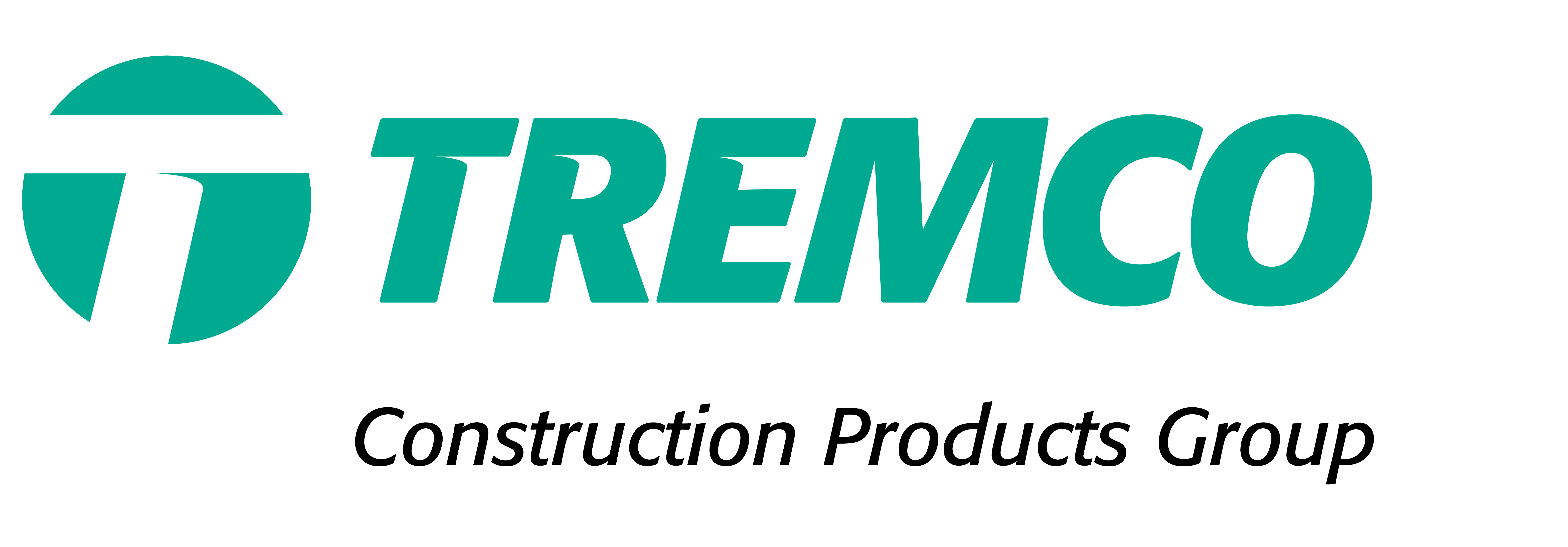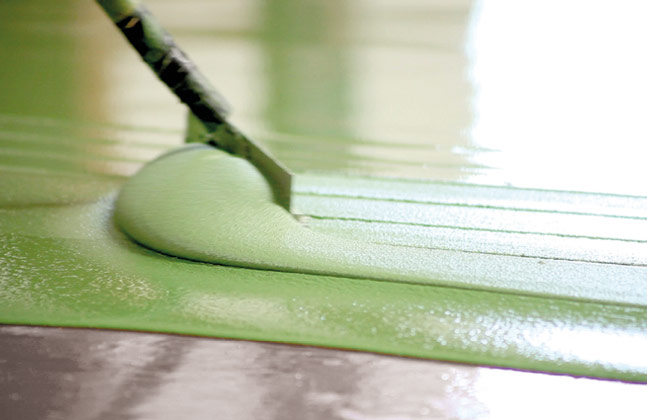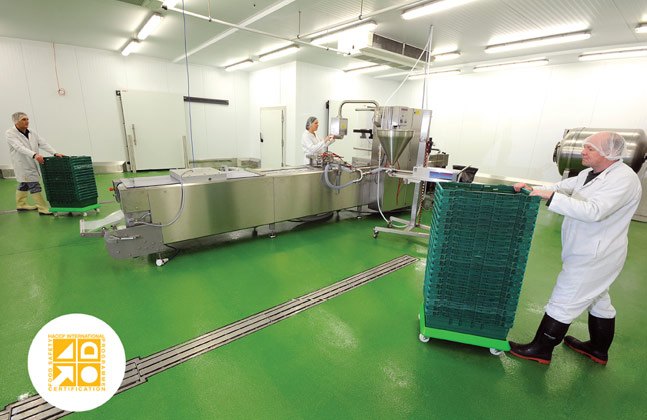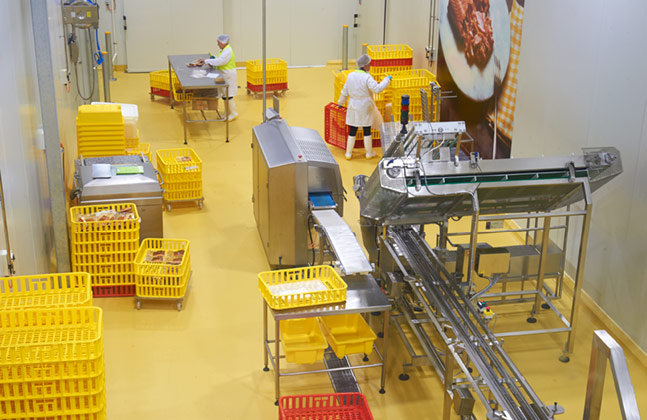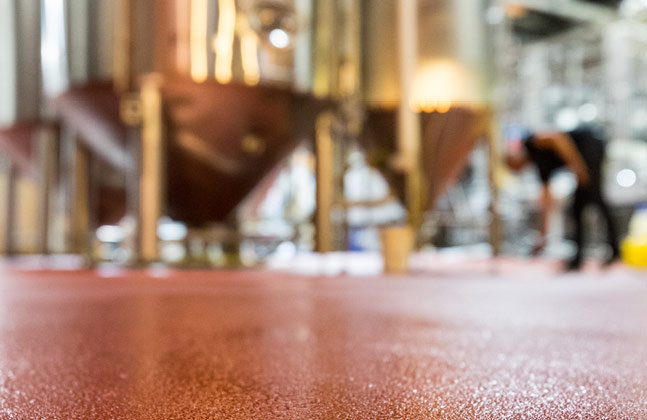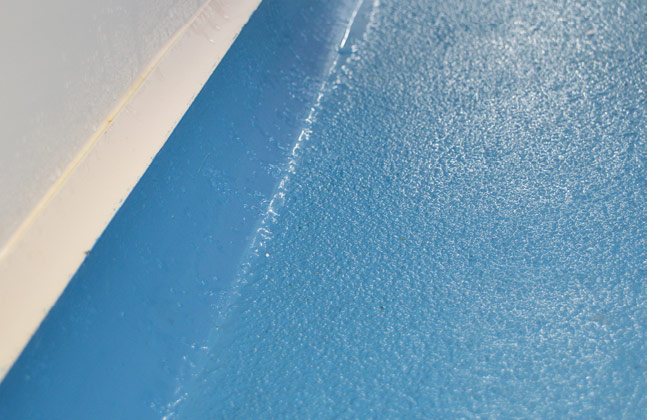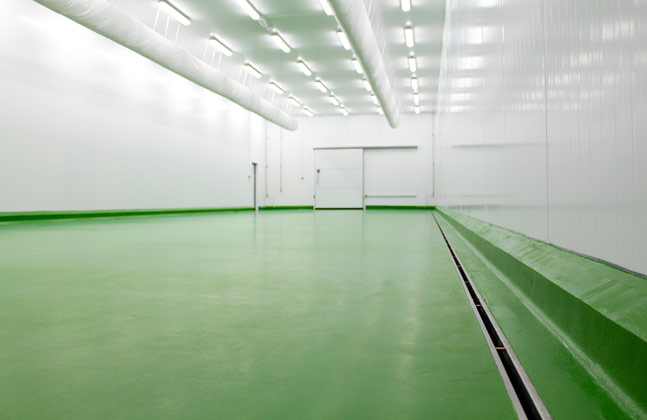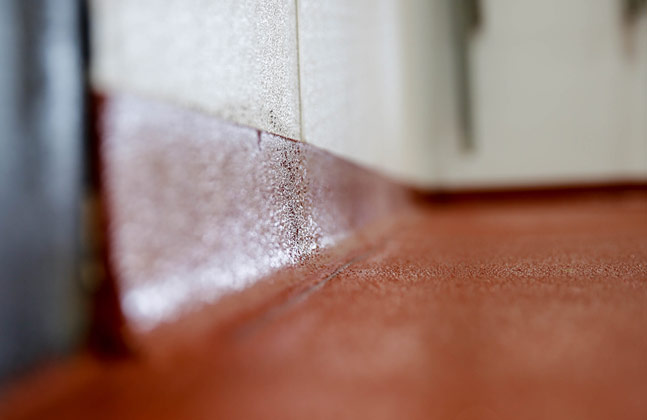Flowfresh: Tested by HACCP International and Time
18 Sep 2017
- More Flowfresh systems now HACCP International certified than ever before.
- Flowfresh has been leading hygienic food industry flooring for over a decade.
- Robust polyurethane floors keep working long after alternative materials have failed.
The ultra-hygienic polyurethane flooring range Flowfresh has successfully achieved HACCP International certification for the second time, with Flowfresh Cove included in the accredited collection for the first time.
This certification comes just over a decade since the global resin flooring manufacturer Flowcrete Group Ltd. first combined the silver-ion based antibacterial agent Polygiene® with a robust polyurethane coating, creating what is now the go-to choice of flooring for the food and beverage industry.
In fact, many of the Flowfresh coatings that Flowcrete worked on a decade ago are still in place and continuing to provide hygienic, reliable and safe surfaces for large-scale food production and processing operations around the world!
Flowfresh was developed to meet a demand in the food and beverage industry for a floor that would withstand the sector’s unique challenges. Without an adequate finish underfoot, food and beverage plants were vulnerable to a long list of unwanted costs and problems.
With an average life-span of approximately 15 years, food producers that have installed a Flowfresh finish know that the facility is protected for the long term against the costs and concerns of a failing floor.
Lifecycle Cost Considerations
The initially higher cost of installing a thicker, fit-for-purpose flooring solution can lead F&B businesses to opt for a cheaper alternative, however this logic often backfires and ends up costing the company more money over time.
This point was exemplified by a formula on lifecycle cost considerations devised by Flowcrete Group Ltd.’s Technical Director, Grant Adamson. The equation takes the initial expense of a floor and adds to it annual maintenance costs, such as cleaning, repairs and upkeep as well as the price of replacing a failed floor, including the costs incurred by shutting down production. The formula is:
Lifecycle Cost Considerations (LCC) Formula
- LCC = C + MPW + RPW
- The capital cost (C) of a project includes the initial capital expense for engineering, products and installation.
- Maintenance (M) is the sum of all yearly scheduled operation and maintenance associated with floor repairs.
- (R) is the replacement cost of a failed floor, including the financial impact of shutting down production.
When you take a 15-year view of flooring, the longevity of polyurethane makes it one of the cheapest materials available. For example, on average a 1,000 sq. ft. polyurethane plant floor will cost approximately USD 11,000 over 15 years, where as epoxies are typically USD 12-13,000, carpet comes in at USD 20,000 while vinyl flooring and linoleum can cost in excess of USD 25,000.
In some circumstances, the cost of a floor failure can exceed even what the above formula is able to calculate. Here we are referring to when a food borne illness outbreak starts out as contaminant build-up in the hard to clean gaps and cracks of a deteriorating floor and from there goes on to infect produce en masse.
This point was exemplified by the case of the cantaloupe producer Jensen Farms in Colorado, USA, where dirty water on the floor was one of the main causes of a listeria outbreak that led to over 125 people from 28 states falling ill. The overall cost of this incident was incalculable and resulted in the two owners of the business being sentenced to five years probation, six months home detention, 100 hours of community service and a $150,000 restitution fine.
This foodborne illness outbreak effectively illustrates that the cost of not designing and maintaining a food safe facility is higher in the long run than the initial expenditure required to install high quality, accredited products.
Long Lasting Antibacterial Legacy
Flowfresh not only meets the strict standards of HACCP International, but its antibacterial property goes beyond even this industry guideline by empowering it with the capacity to eliminate up to 99.9% of bacteria in contact with the floor.
The manner in which Polygiene®’s unique, all-natural silver-ion technology is incorporated throughout the polyurethane matrix of Flowfresh means that even after a decade and a half, the floor won’t have lost any of its bactericidal power. This contrasts starkly to antibacterial treatments that rely on chemical coatings, which are prone to wearing away over time.
The permanence of Flowfresh’s bacteria killing property was put to the test when it was analysed according to the ISO 22196 standard, which measures the efficacy of antibacterial-treated surfaces. As part of this test, samples of Flowfresh were hot washed and abraded multiple times, over and above the ISO 22196 requirements. This intensive abuse was undertaken to recreate the reality of what a floor in a food plant would be subjected to and Flowfresh more than proved that it was able to survive such conditions and maintain its superior hygiene credentials.
To find out more about choosing a floor that will provide a safe, hygienic and regulatory compliant finish well into the next decade, make sure you get in touch with your local Flowcrete representative.
ENDS
Enjoy this post? Click below to share it with your network:
Press Contact
For Flowcrete in New Zealand's contact details please visit www.flowcrete.co.nz/contact-us and touch base with the Marketing Team.
Notes to Editors
Flowcrete's activity in New Zealand is represented by Altex Coatings Ltd. Flowcrete in New Zealand is part of Flowcrete Australia, which has offices in Brisbane, Sydney and Melbourne and is part of Flowcrete Asia Pacific, one of the four divisions that make up Flowcrete Group Ltd.
Flowcrete supplies world-class seamless flooring solutions to transform environments across the globe including; decorative seamless resins, waterproof car park deck coating systems, seamless resin terrazzo, durable antimicrobial flooring, fast curing systems, corrosion protection, self-levelling underlayments and swimming pool surrounds.
Flowcrete's ambitious and dedicated team is inspired by excellence in people, products and service, as well as continual innovation and sustainable growth. Flowcrete continues to use its global expertise to introduce environmentally friendly, hygienic and aesthetically attractive floors to create a better and more sustainable world.
For further information please contact nzweb@flowcrete.com.
Or visit us on the web at www.flowcrete.co.nz.
